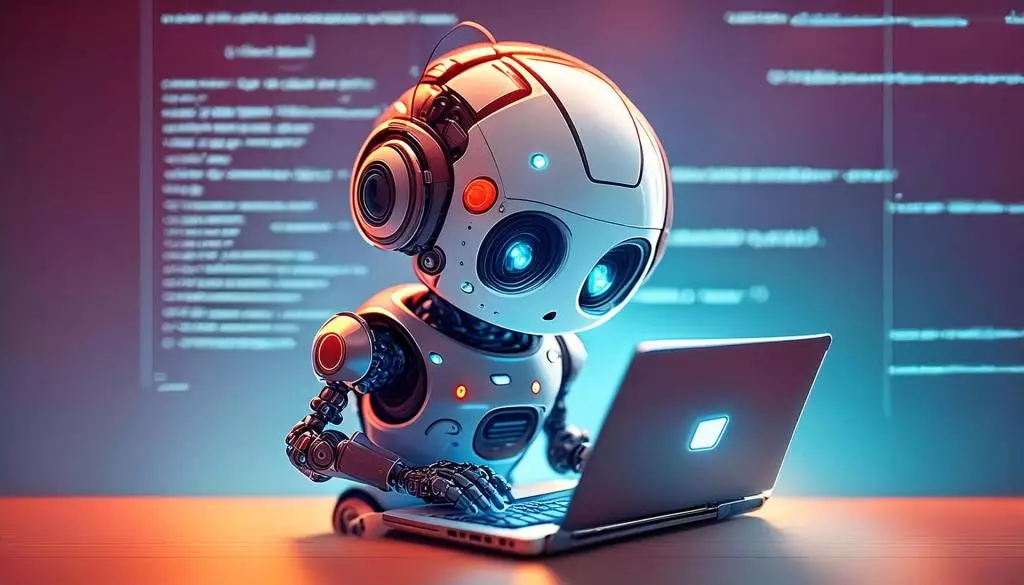The technological landscape is undergoing a seismic shift as artificial intelligence (AI) integration into coding becomes an unmistakable reality. With the advent of AI-driven coding platforms, the methods by which developers create, debug, and optimize code are being revolutionized. Among the notable players in this battle for supremacy in the AI coding arena is Google’s latest innovation, Jules. Originally debuting in December as an experimental tool, its recent move into beta signifies a bold statement of intent from Google as it positions itself against competitors, notably OpenAI’s Codex.
Jules offers a compelling promise: developers can offload tedious tasks like bug fixes and documentation checks to an autonomous system. This marks a significant departure from traditional coding practices, where every line of code was painstakingly written and debugged by human hands. Josh Woodward, VP of Google Labs, succinctly encapsulates the potential impact of Jules by stating, “People are describing apps into existence.” This emerging concept of “vibe coding” highlights how developers might soon produce applications through intuitive prompts, dramatically reshaping the coding landscape.
A New Era of Productivity
The asynchronous capabilities of tools like Jules and Codex could drastically alter how developers approach their workflows. Built on Google’s advanced Gemini 2.5 Pro platform, Jules allows developers to assign it tasks while simultaneously working on separate projects. This multitasking feature promotes increased productivity—developers can focus on critical problem solving or creative aspects while relying on AI for routine fixes. The dual operational model is poised to redefine how coding teams function, potentially making them more agile and collaborative than ever before.
Furthermore, the incorporation of innovations like audio summaries and detailed reasoning for executed tasks enhances usability. The accessibility offered by these features represents a critical shift that empowers developers to engage with the technology without needing deep technical know-how for the AI agent. As technology progresses, the friction between expertise level and usability could diminish, allowing more novices to participate in coding.
Competing Innovations in a Thriving Ecosystem
It’s essential to recognize that Jules is not standing alone in this burgeoning field. OpenAI’s Codex has made significant strides in transforming its coding model into a fully-fledged autonomous agent. With its roots in code completion through GitHub Copilot, Codex now boasts capabilities to troubleshoot and respond to codebase inquiries effectively. The simultaneous announcements from both Tech giants illustrate an electric race to the forefront of AI development.
Moreover, the ongoing competition is fostering an exciting dynamic in the tech ecosystem. The mutual pressure to innovate quickly might lead to breakthroughs that can benefit developers globally. Platforms like GitHub Copilot Agent are also emerging from the shadows, revealing the potential for even more sophisticated coding agents that can share the load traditionally carried by programmers, giving them room to flourish creatively.
The Democratization and Emotional Shift in Coding
The ramifications of these technologies extend beyond mere efficiency; they invite a cultural shift within the programming community. As more complex applications can be birthed from simple prompts, the barriers to entry for aspiring developers dissolve. Initiatives like Google’s Firebase, which empowers users with minimal coding experience to create applications, demonstrate a commitment to democratizing coding. Jeanine Banks, VP and GM at Google, emphasizes that such platforms allow newcomers to experiment freely with AI features—an exciting prospect that harmonizes well with the ethos of innovation that defines the tech industry.
The emotional landscape for developers is bound to change as well. More mundane coding tasks will gradually disappear, freeing developers to engage in creative problem-solving processes that require more intricate thought and collaboration. Vibe coding does not just promise a change in how applications are built; it heralds an era where emotional investment in projects can focus more on creativity and less on repetitive troubleshooting.
The ongoing transformation catalyzed by AI-powered coding tools represents a powerful moment in tech history. The excitement peppered throughout communities and discussions online signals a contagious eagerness to embrace the new possibilities that lie ahead. The future of coding is not just about writing code anymore; it’s about harnessing the power of AI to evoke innovation.

